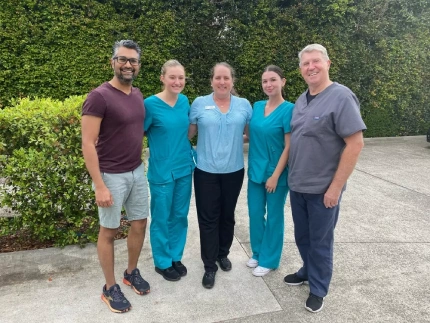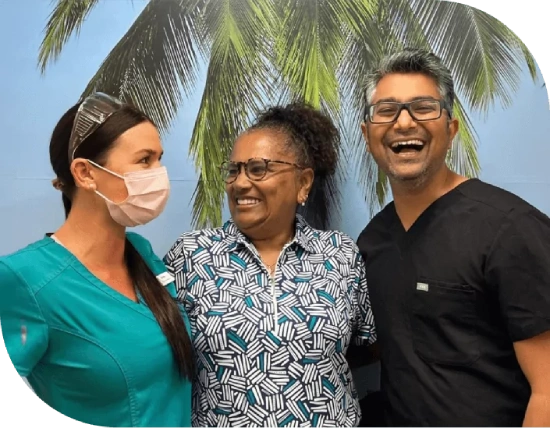
Dentist Maleny
Our practice has been committed to
superior dental solutions for 20 years.


Explore Compassionate and Complete Dental Services at The Smile Workx
At The Smile Workx, gentle and comprehensive dental care is our utmost priority.
We aim to deliver treatments that are effective and comfortable for every individual.
Our team aims to provide a serene and uplifting experience for all patients, extending beyond dental procedures. Each visit is crafted to leave you feeling calm and reassured.
Conveniently located at 48 Mary Street in Noosaville, our clinic provides easy access with off-street parking and facilities designed for those requiring wheelchair assistance.
A wide spectrum of dental solutions is available to cater to the needs of patients from all age groups.
Our Special Offers

Check-up & Clean $62.25/week* or $249
⚫ Scale & Clean
⚫ Gum Health Assessment
⚫ Refreshing Fluoride
⚫ New patient hygiene gift
⚫ New patients Only
Health fund rebates available!
⚫ All x-rays included

Kids Specials $0 out of pocket
⚫ GAP FREE for Under 14 years old, health fund members
⚫ Comprehensive Exam and Consultation
⚫ Scale & Clean with X Rays
⚫ Gum Health Assessment
⚫ Refreshing Fluoride

Dental Implants $35/week*
⚫ Complimentary Consultation (Savings of $55)
⚫ Celebratory post treatment gift: Water Air Flosser (valued at $99)
⚫ New Patient Hygiene Gift
⚫ Flexible payment plans

Orthodontics $83/week*
⚫ Complimentary Smile Consultation
⚫ Bonus gift: Custom retainers (valued at $500)
⚫ Celebratory Gift: Professional Whitening Kit (savings of $460)
⚫ New Patient Hygiene Kit

Smile Makeover Package $87.50*/week
⚫ High Quality-Natural Looking Veneers
⚫ Celebratory Post Treatment Gift - Professional Smile Portraits
⚫ New Patient Hygiene Gift

Custom Sports Mouthguards GAP-FREE or $100
⚫ Highly Durable and Comfortable
⚫ Pick your child’s favourite colour!

Check-up & Clean $62.25/week* or $249
⚫ Scale & Clean
⚫ Gum Health Assessment
⚫ Refreshing Fluoride
⚫ New patient hygiene gift
⚫ New patients Only
Health fund rebates available!
⚫ All x-rays included

Kids Specials $0 out of pocket
⚫ GAP FREE for Under 14 years old, health fund members
⚫ Comprehensive Exam and Consultation
⚫ Scale & Clean with X Rays
⚫ Gum Health Assessment
⚫ Refreshing Fluoride

Dental Implants $35/week*
⚫ Complimentary Consultation (Savings of $55)
⚫ Celebratory post treatment gift: Water Air Flosser (valued at $99)
⚫ New Patient Hygiene Gift
⚫ Flexible payment plans

Orthodontics $83/week*
⚫ Complimentary Smile Consultation
⚫ Bonus gift: Custom retainers (valued at $500)
⚫ Celebratory Gift: Professional Whitening Kit (savings of $460)
⚫ New Patient Hygiene Kit

Smile Makeover Package $87.50*/week
⚫ High Quality-Natural Looking Veneers
⚫ Celebratory Post Treatment Gift - Professional Smile Portraits
⚫ New Patient Hygiene Gift

Custom Sports Mouthguards GAP-FREE or $100
⚫ Highly Durable and Comfortable
⚫ Pick your child’s favourite colour!
Why Choose Us?
Opting for our dental practice means entrusting your oral health to highly experienced professionals who are deeply committed to your well-being. Our skilled, gentle staff is passionate about helping each patient achieve and maintain a radiant, healthy smile through attentive, high-quality dental services.
Located in the heart of Noosaville, our clinic is known for its commitment to high-quality dental care, provided in a serene and welcoming environment. This approach has solidified our reputation, encouraging families to continue their dental journey with us for years.
We understand the diverse dental needs of the youngest to the oldest family members and customise each treatment to reflect individual requirements.
Our clinic ensures every experience is tailored, from routine check-ups to more intricate dental procedures, fostering a comfortable and effective dental visit.
Choose The Smile Workx for quality dental care
Be confident that our customised approach aligns perfectly with your family's dental needs.
- Value-driven, inclusive dental treatments provided
- Welcoming, family-focused clinic environment for all ages
- Utilisation of the latest dental technologies and modern practices
- Experienced dental practitioners available
- Comprehensive selection of dental health services
- Adaptable payment strategies to fit various economic backgrounds
- Child-specific bulk billing facilities accessible
- Authorised affiliates for BUPA, HCF, NIB, and WestFund
- Immediate response protocol for dental emergencies
- Personalised scheduling system to accommodate individual needs
- Sophisticated options for cosmetic dental improvements offered
For more information on dental treatments and appointments, schedule an appointment with us at (07) 5300 2133.







Payment Plans Available
What Our Customers Say
Frequently Asked Questions
What is cosmetic dentistry?
Cosmetic dentistry encompasses a variety of dental treatments and procedures conducted at a dental clinic aimed at improving the appearance of teeth and smiles. Unlike traditional dental treatment focused on oral hygiene and health, cosmetic dentistry may include dental surgery, teeth whitening, veneers, and dental implants to enhance aesthetic appeal. These procedures can rectify issues such as discolouration, misalignment, or gaps, ultimately boosting confidence and contributing to a more attractive smile.
What is children’s dentistry?
Children’s dentistry, also known as paediatric dentistry, focuses on the oral health of children from infancy through the teenage years. This dental specialty addresses a range of treatments to maintain or restore good oral health in young patients. Services include regular check-ups, cleanings, fluoride treatments, and procedures to replace missing teeth or repair damage. A key component of children’s dentistry is educating both parents and children on proper oral hygiene practices to ensure lifelong dental health.
How is teeth whitening done?
Teeth whitening is a popular dental procedure aimed at removing stains and enhancing the brightness of one’s smile. It’s a highly effective method for improving dental aesthetics and boosting self-confidence. Understanding how teeth whitening is performed can help individuals make informed decisions about their oral health and cosmetic dental treatments.
Professional In-Clinic Whitening
Professional in-clinic whitening, also known as chairside whitening, is performed by dental professionals in a dental clinic. This method usually involves the application of a high-concentration peroxide gel to the teeth, after protecting the gums with a rubber dam or gel. Special lights or lasers may be used to enhance the action of the whitening agent, speeding up the process. This method is favoured for its quick results, often lightening teeth by several shades in a single visit.
At-home Whitening Kits from Dentists
Dentists can provide at-home whitening kits that offer results similar to in-clinic treatments but over a longer period. These kits include custom-fitted trays made from impressions of the patient’s teeth, ensuring even application of the whitening gel. Patients apply the lower-concentration peroxide gel to the trays and wear them for a prescribed period each day, typically over a couple of weeks.
Over-the-Counter Whitening Products
Over-the-counter (OTC) whitening products, such as strips, gels, and toothpaste, offer a more accessible but less potent alternative to professional treatments. While convenient, their lower peroxide content means they may take longer to achieve noticeable results, and they may not address all types of staining or discolouration as effectively as professional methods.
The Whitening Process
Regardless of the method chosen, the basic principle behind teeth whitening remains the same: the peroxide in the whitening agent breaks down, allowing oxygen to enter the enamel and dentin, which bleaches coloured substances while leaving the structure of the tooth unchanged. During professional treatments, dentists may apply the whitening agent multiple times, monitoring the progress and adjusting as necessary to achieve the desired shade.
Considerations and Aftercare
Before undergoing any whitening treatment, a dental check-up is recommended to address any oral health issues that could affect the outcome, such as cavities or gum disease. Post-whitening, patients may experience temporary sensitivity, which can be managed with products designed to minimise this side effect.
Long-term care following teeth whitening involves maintaining good oral hygiene practices, avoiding staining substances such as tobacco, coffee, and red wine, and considering touch-up treatments as recommended by a dentist. Regular dental check-ups and cleanings are also essential to preserve the results of teeth whitening.
What is preventative dentistry?
Preventative dentistry encompasses practices aimed at maintaining good oral health and preventing dental problems before they start. This includes regular dental check-ups, cleanings, fluoride treatments, and educating patients on proper brushing and flossing techniques. Preventative care is essential for avoiding complex and costly dental treatments in the future.
What are the different types of dentures?
Dentures are removable dental devices employed to replace missing teeth, restoring both oral functions and aesthetics. They play a crucial role in maintaining oral health, particularly for individuals who have lost multiple teeth due to various reasons. There are several types of dentures designed to cater to different needs, each requiring specific considerations for fitting and oral surgery if necessary.
Full Dentures
Full dentures, alternatively termed complete dentures, are employed when all natural teeth are absent in either the upper or lower jaw or both. These dentures include a full set of artificial teeth fixed onto a flesh-toned acrylic base that moulds to the gums. The upper denture covers the palate, while the lower one has a horseshoe shape to allow space for the tongue. Full dentures are custom-made in a dental laboratory from impressions taken of the patient’s mouth, ensuring a comfortable and secure fit.
Partial Dentures
Partial dentures are designed for individuals who still retain some of their natural teeth. These dentures fill in the spaces created by missing teeth and prevent other teeth from changing position. Partial dentures typically comprise replacement teeth affixed to a gum-coloured plastic base, occasionally supported by a metal framework securing the denture within the mouth. They not only restore the appearance and functionality but also maintain the alignment of existing teeth by preventing them from shifting.
Immediate Dentures
Immediate dentures are crafted beforehand and can be placed immediately after natural teeth extraction. These dentures enable patients to have teeth during the recovery phase following oral surgery or tooth removal. Nonetheless, gums and bones may shrink over time, particularly during the healing process post-tooth extraction. Consequently, immediate dentures might necessitate more fine-tuning to ensure a proper fit compared to conventional dentures.
Overdentures
Overdentures are an alternative for those who find conventional dentures uncomfortable or have few natural teeth remaining. These dentures fit over a small number of remaining natural teeth or implants, which have been prepared by the dentist. Overdentures provide stability, preserve jawbone, and offer a natural appearance and function. The preparation of existing teeth may involve oral surgery to ensure they are suitable to support the overdentures.
What are wisdom teeth?
Wisdom teeth, the final set of molars, usually emerge during early adulthood or late adolescence. While some individuals encounter no problems with their wisdom teeth, others may undergo discomfort, crowding, or infections, necessitating extraction.
What are the causes of gum disease?
Gum disease, also known as periodontal disease, is a common condition characterised by inflammation, swelling, and potential loss of tissue and bone around the teeth. Various factors contribute to the development of this condition, impacting individuals’ oral health significantly.
Poor Oral Hygiene
Inadequate brushing and flossing lead to plaque buildup, a sticky film of food and bacteria. If not removed, plaque hardens into tartar, exacerbating gum inflammation and leading to gingivitis, the earliest stage of gum disease. Regular dental check-ups and proper oral care routines are essential in preventing this progression.
Smoking and Tobacco Use
Smoking is one of the most significant risk factors for developing gum disease. It interferes with the normal function of gum tissue cells and can affect the attachment of bone and soft tissue to your teeth, making smokers more susceptible to infections like periodontal disease.
Hormonal Changes
Hormonal changes in women, particularly during puberty, pregnancy, menopause, and monthly menstruation, can make gums more sensitive and more vulnerable to gum disease. These changes can make gums more reactive to irritation from plaque and bacteria.
Poor Nutrition
Inadequate nutrient intake in one’s diet can weaken the body’s immune system, making it more challenging for the body to combat infections, such as periodontal diseases. Vitamin C deficiency, in particular, is linked to gum inflammation and bleeding.
Illnesses
Certain illnesses, such as diabetes and cancer, affect the immune system and can impact the condition of the gums. Diabetics, for example, are at higher risk for developing infections, including periodontal disease, due to their reduced ability to fight bacteria.
Medications
Some medications can affect oral health because they lessen saliva flow, which has a protective effect on teeth and gums. Medications for conditions like depression, heart disease, and certain blood pressure treatments can negatively impact oral health, leading to gum disease.
Family History of Dental Disease
Genetics can play a role in the susceptibility to gum disease. Individuals with a family history of dental disease, particularly periodontal disease, are at an increased risk, highlighting the importance of regular dental check-ups.
Clenching or Grinding Teeth
Clenching or grinding your teeth can exert excess force on the supporting tissues of the teeth and could increase the rate at which these periodontal tissues are destroyed, leading to gum disease.
Stress
Stress impacts the body’s immune system, making it harder to fight off infections, including periodontal diseases. Managing stress and maintaining a healthy lifestyle can help reduce the risk of developing gum disease.
Note: Any surgical or invasive procedure carries risks. Before proceeding, you should seek a second opinion from an appropriately qualified health practitioner.













